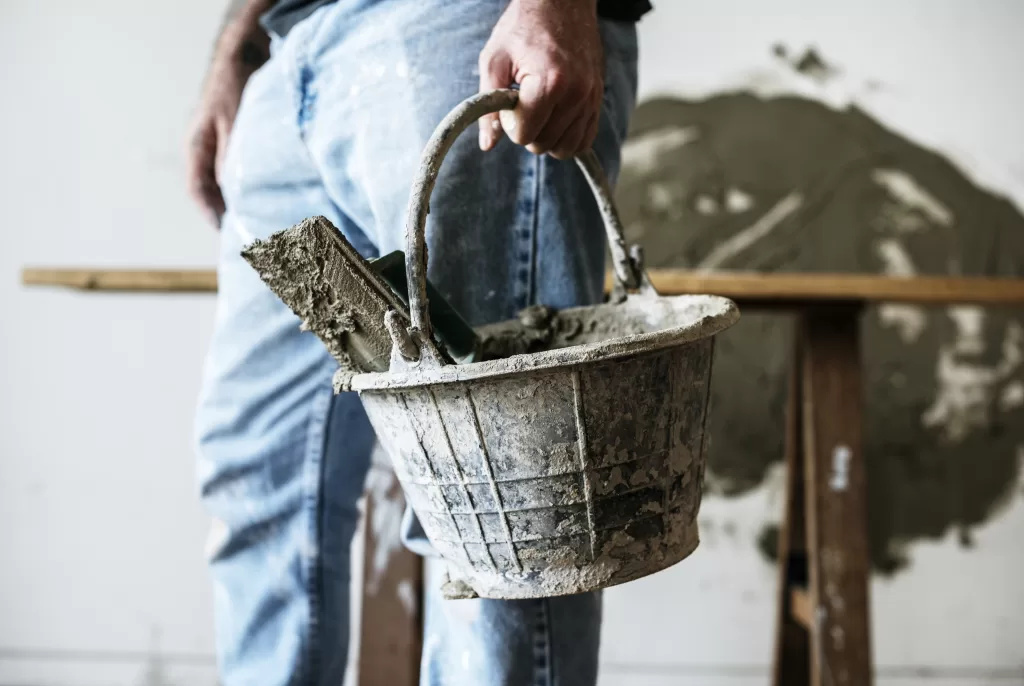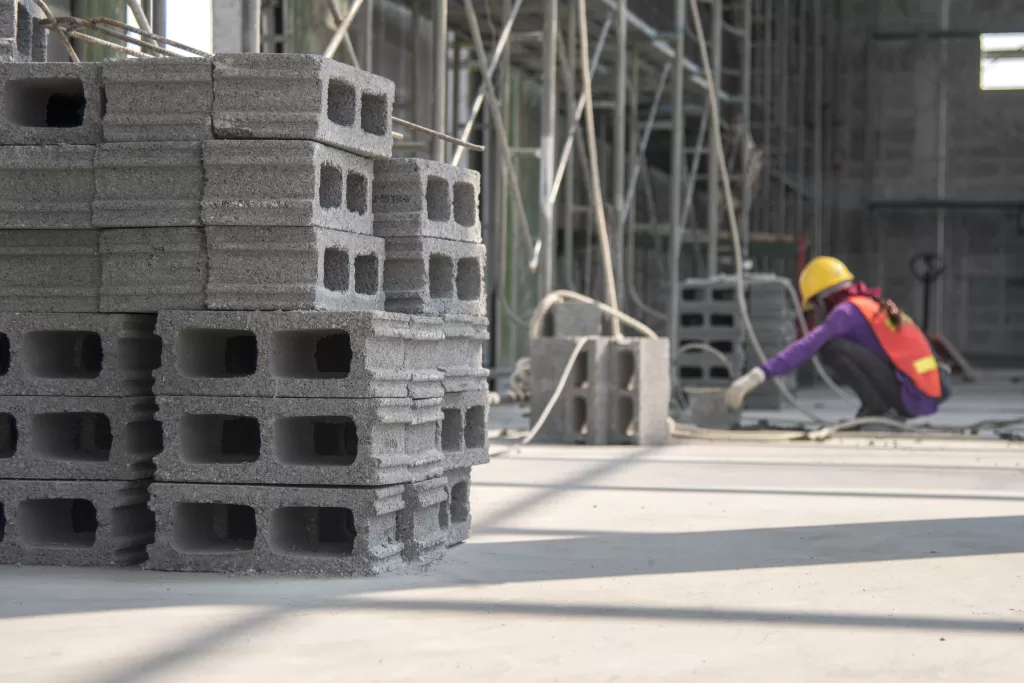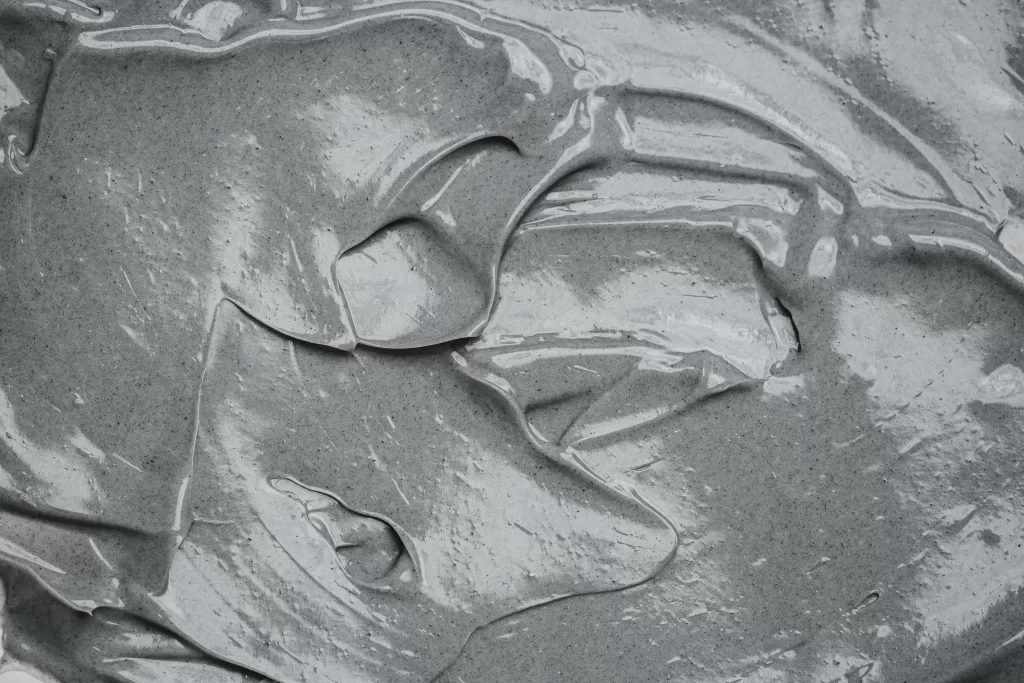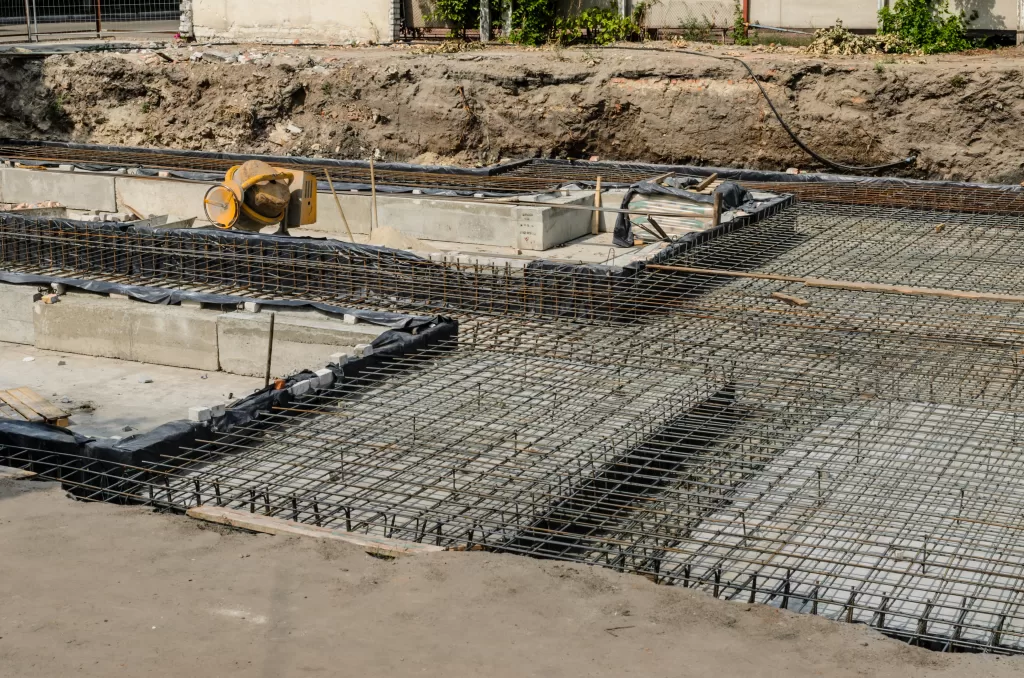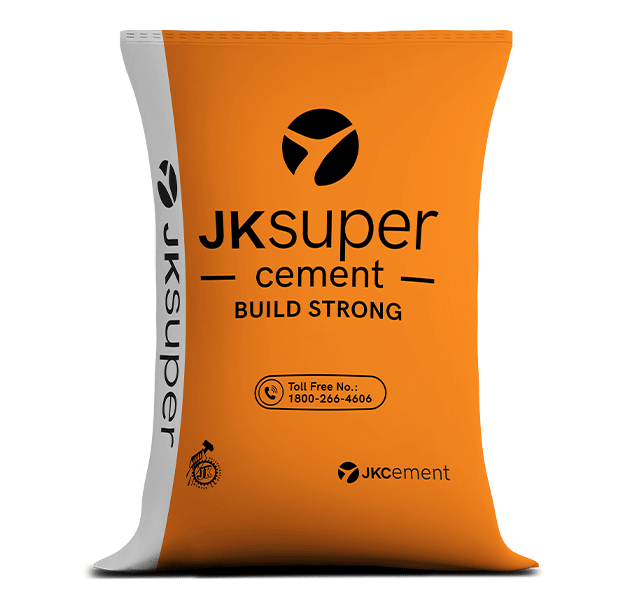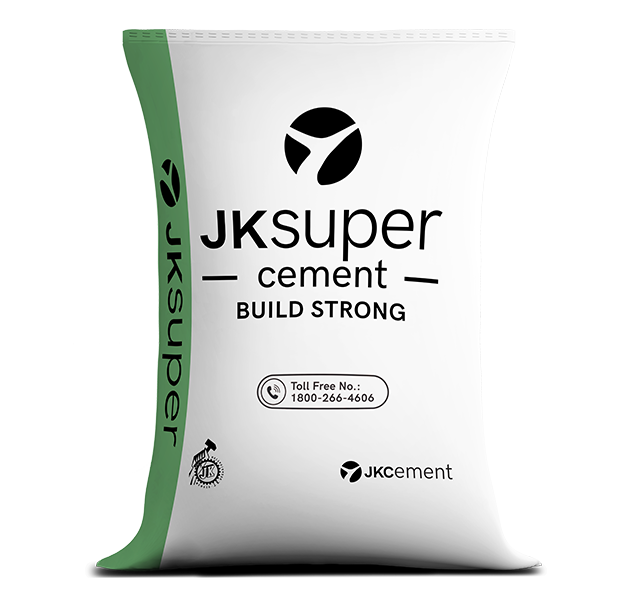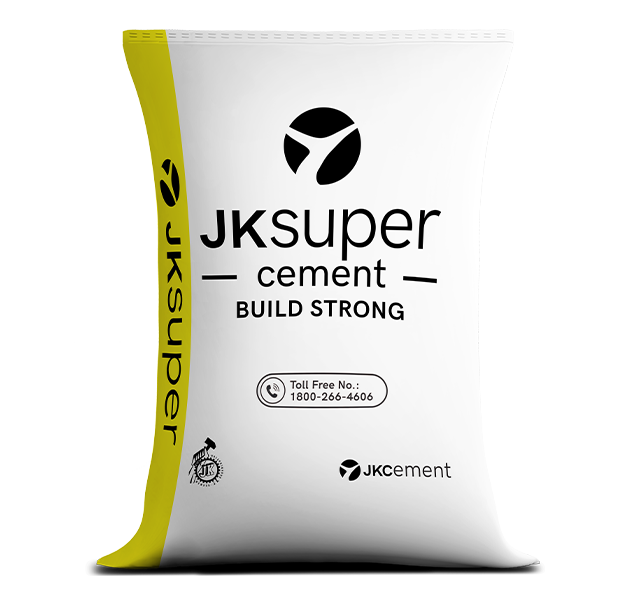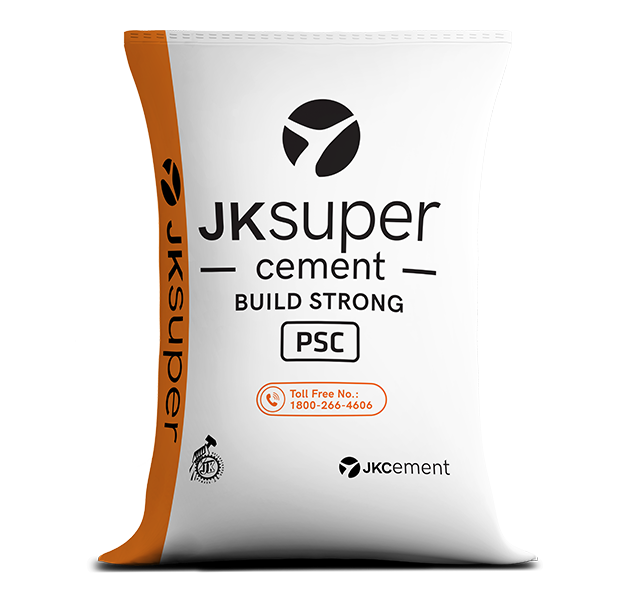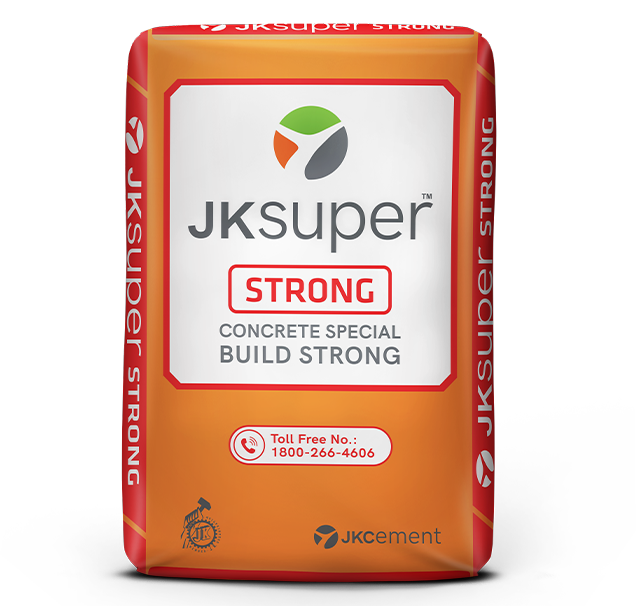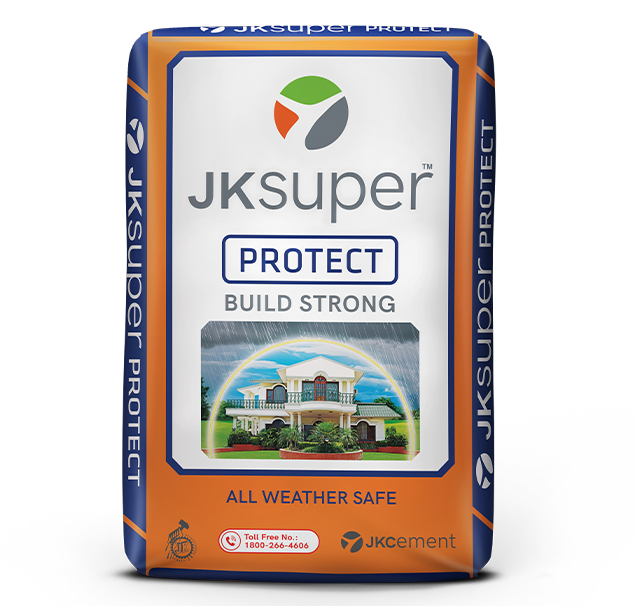Cement plays a pivotal role in modern construction and infrastructure development. Its unique properties make it an essential component for a wide range of applications. In this article, we will delve into the various uses of cement and explore how it is utilised in different sectors, including structural applications, road construction, masonry work, architectural uses, industrial settings, repair and rehabilitation, and sustainable construction.
What Is Cement?
Cement is a fine powder that serves as a binding agent in construction materials. It is primarily composed of limestone, clay, shells, and silica, which are kiln-fired to produce clinker and then finely ground to produce cement. The most common type of cement used is Portland cement, which is manufactured by heating a mixture of limestone and clay to high temperatures. Cement, when combined with water, undergoes a chemical reaction called hydration. It becomes a paste that binds aggregates, as it hardens.
Where Is Cement Used?
Cement is used in various structural applications. It is a key ingredient in concrete, a versatile construction material widely employed in the building industry. The combination of cement, aggregates like gravel and sand, and water creates a durable and robust material that can be shaped into different forms. Concrete structures, such as buildings, bridges, dams, and tunnels, rely on cement’s strength and durability to provide structural integrity.
Concrete Pavement and Road Construction
Concrete pavement and road construction rely heavily on cement. Highways, streets, and sidewalks are often constructed using reinforced concrete, which consists of steel bars embedded within the concrete to enhance its strength and resistance to cracking. Cement-based concrete pavements offer excellent load-bearing capacity, durability, and resistance to heavy traffic, making them an ideal choice for road infrastructure.
Cement in Masonry Work
Cement is a vital component in masonry work, which involves the construction of walls, partitions, and other structures using bricks, blocks, or stone. Cement-based mortars and grouts are used to bond these masonry units together, providing strength and stability to the overall structure. The ability of cement to adhere to different surfaces and withstand various weather conditions makes it an indispensable material in masonry construction.
Manufacturing Precast Members
Precast members are concrete structures cast into form before being transported to the construction site. Concrete members like pipes are used in drainage systems. Cement is also used in concrete mix which is further used to build water tanks and septic tanks. Other precast members include beams, footings, columns, partition walls, concrete lamp posts, etc.
Hydraulic and Marine Structures
Hydraulic and marine structures like dams, reservoirs, piers, ports, etc., are built using concrete with cement as the binding material. Since such structures are susceptible to water damage over time, it is imperative that structures be strong against moisture. Hydrophobic cement, Portland Pozzolana Cement (PPC), and Portland Slag Cement (PSC) are suitable for hydraulic and marine works.
Sealing Applications
Cement-based products are widely employed for sealing applications. Cement-based coatings, sealants, and membranes are used to protect structures from water penetration, preventing moisture-related issues such as leaks and dampness. These products create a barrier that prevents water from seeping into the building, ensuring its long-term integrity.
Decorative and Architectural Uses of Cement
Cement’s versatility extends beyond its structural applications; it is also used for decorative and architectural purposes. Decorative cement finishes, such as textured coatings, stamped concrete, and exposed aggregate, add aesthetic appeal to surfaces. Architectural elements, such as columns, arches, and facades, often incorporate cement-based materials due to their versatility, durability, and ability to create unique designs.
Cement in Industrial and Commercial Settings
Cement finds extensive use in industrial and commercial settings. Industrial flooring, warehouses, factories, and parking lots often utilise cement-based materials due to their high strength, abrasion resistance, and ease of maintenance. Cement is also utilised in the construction of storage tanks, silos, and other industrial structures, ensuring their structural stability and longevity.
Repair and Rehabilitation with Cement
Cement plays an important role in the repair and rehabilitation of existing structures. It is used to patch and fill cracks, repair damaged concrete elements, and restore structural integrity. Cement-based materials provide a cost-effective solution for extending the lifespan of deteriorating infrastructure, contributing to the sustainability of the built environment.
Nuclear Power Plant Structures
Concrete made from cement is also an essential component of power plant construction. Such structures require concretes of higher densities to be able to effectively shield against radiation and high temperatures. Hydraulic cement, OPC, etc., may be used to mix the concrete.
Cement in Sustainable Construction
With increasing awareness of environmental concerns, cement is also used in sustainable construction practices. Innovations such as blended cement, which incorporate supplementary cementitious materials like fly ash and slag, reduce the carbon footprint associated with cement production. Additionally, the use of cement in energy-efficient building systems, such as insulated concrete forms (ICFs), contributes to sustainable and energy-efficient construction practices.
Make use of our premium quality cement for various construction needs.
FAQs
What are the primary uses of cement in construction?
The primary ways cement is used in construction include structural applications, road construction, masonry work, waterproofing, architectural uses, industrial settings, repair and rehabilitation, and sustainable construction.
Can cement be used for both residential and commercial projects?
Yes, cement can be used for both residential and commercial projects. Its versatility and strength make it suitable for a wide range of construction applications in various settings.
What are some specific applications of cement in infrastructure projects?
Some specific applications of cement in infrastructure projects include concrete for building structures, road construction, bridges, dams, tunnels, and other transportation and water-related infrastructure.
How is cement used in masonry work and bricklaying?
Cement is used in masonry work and bricklaying as it serves as a binding agent, helping to bond bricks or masonry units together to create sturdy and durable structures.

